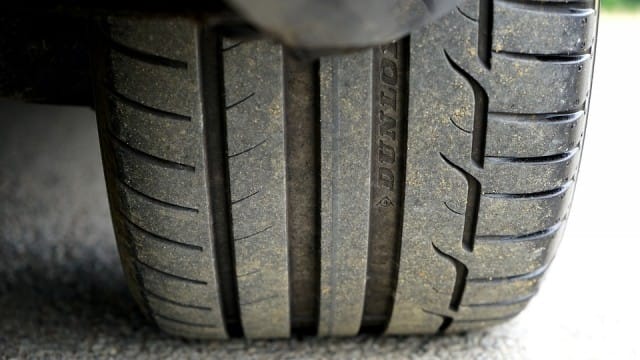Are Part-Worn Tyres False Economy?

When the time comes to changing tyres on your car, especially if this comes unexpectedly from a puncture or blowout, it may be tempting to opt for the cheapest tyre possible; even if the tyre is part worn. Some garages may offer a part worn tyre for a discounted price, but are you really saving money by choosing one over a brand new tyre?
First of all, you need to understand where part worn tyres come from. If a car, or its wheels, are scrapped, then some garages will remove and store the tyres to sell on at a discounted rate. Other possible sources include tyres from customers who have had new tyres fitted, and instead of recycling them, garages try to make some profit on them, or they may be imported cheaply from the continent - making it easy money for garages.
However, whilst it may appear the part-worn tyres offer good value for money of first glance for budget-savvy motorists, the true cost of part-worn tyres goes far beyond safety issues they pose.
The average tread depth on a part-worn tyre in the UK is 4mm; with 2mm not being uncommon (this is the minimum tread depth required by Trading Standards) - that’s just 0.4mm from the legal limit in the UK. Compare this to a brand new tyre that comes with around 8mm of tread depth and part-worn tyres suddenly sound a lot less attractive. So, what does this equal to in terms of what matters most to motorists looking for a bargain - money?
If we use the average price of a budget tyre here at TyreSavings - £40 - and the average price of a part-worn tyre of £25, we can work out how much each tyre costs you per mm. We’ll be generous here, and assume that a part worn tyre comes with 4mm of tread (if you’re lucky) and use the average tyre depth of a new tyre of 8mm.
Using these figures, the average part-worn tyre would cost you around £6.25 per mm of tread, whereas a new tyre would cost around £5 per mm of tread - that’s a 20% saving when buying brand new tyres. If a 20% saving isn’t enough to persuade you to ditch part-worn tyres, consider adding fitting, wheel balancing and alignment to the cost (which will need to be done each time you change the tyre) then new tyres offer considerably better value. Of course, figures for the part worn tyre were based on an optimistic 4mm of tread; the price per mm is typically going to be even higher in the real world.
Based on 4mm of tread on a part-worn tyre, this leaves you with 2.4mm of tread before the tyre becomes illegal, which is the equivalent of roughly 6,000 miles under normal driving conditions; depending on the quality of the tyre. Using the same calculations, a brand new tyre with 8mm of tread would last 20,000 miles.
Given that a brand new, budget tyre will cost you around 60% more than a part worn, but you’ll get 230% more miles out of it - it becomes a no-brainer, right?
It goes without saying that part-worn tyres don’t only cost you more in the long run, they have severe safety implications for you and other road users. Read our Part Worn Tyre Safety guide if you still need convincing that part-worn tyres should never be considered.

